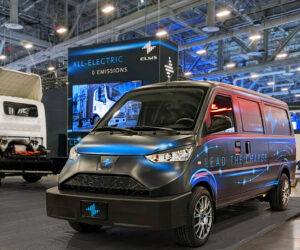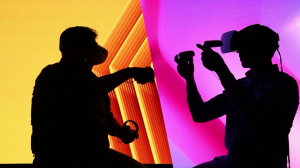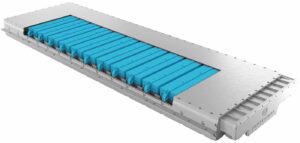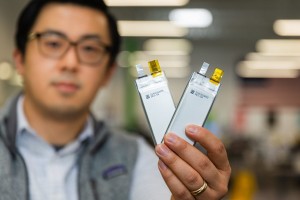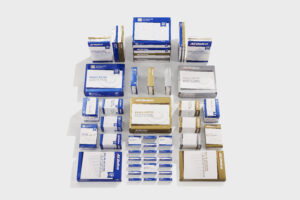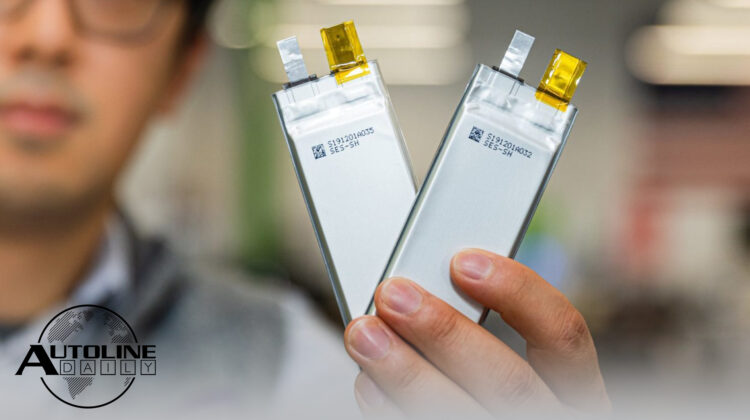

Follow us on social media:
Runtime: 9:54
0:07 1st Felony Charges for Driver Using Automated System
1:06 Ford’s Rivian Investment Worth Billions
1:42 Audi Could Partner with McLaren in Formula 1
2:33 ELMS Expanding Delivery EV Lineup
3:58 Renault Starts Using VR in Design
4:42 Ford & ADT Form Vehicle Safety Joint Venture
6:22 VW & Bosch Team to Boost Battery Cell Production
6:46 BYD & FAW Create New Battery Joint Venture
7:10 Nikola Will Use Proterra Battery Systems
7:26 Honda Announces New Battery Partnership
8:26 GM Takes Its Parts Catalog Online
Visit our sponsors to thank them for their support of Autoline Daily: Bridgestone, Intrepid Control Systems and Schaeffler.
This is Autoline Daily, the show dedicated to enthusiasts of the global automotive industry.
1ST FELONY CHARGES FOR DRIVER USING AUTOMATED SYSTEM
There’s been a lot of negative news around Tesla’s Autopilot system lately. And one of its owners just got hit with felony charges by prosecutors in California for a fatal accident that occurred while his vehicle was operating on Autopilot. This is the first time in the U.S. charges have been filed against a driver using a partially automated driving system. The driver is being charged with two counts of vehicular manslaughter after his Model S ran a red light at a high rate of speed and hit another car, killing both people inside. The charging documents don’t mention Autopilot, however NHTSA has confirmed that Autopilot was being used at the time of the crash. A preliminary hearing for the accident, which occurred in 2019, is set for the end of February. NHTSA is also conducting a separate investigation into Autopilot involving several accidents where Tesla’s crashed into parked emergency vehicles.
FORD’S RIVIAN INVESTMENT WORTH BILLIONS
About three years ago Ford invested $500 million in Rivian. Now that investment is worth $8.2 billion and Ford is going to book that as part of its fourth quarter earnings. So we need to keep that in mind when the company reports those earnings on February 3rd because otherwise the numbers are going to make your eyes pop out of your head. And we’re still sticking to our prediction that at some point Ford will dump its stock in Rivian to pay for Blue Oval City, that massive EV manufacturing complex it’s building in Tennessee.
AUDI COULD JOIN MCLAREN IN FORMULA 1
The Formula One circus has been abuzz with rumors that Audi and Porsche are going to join the series. But they’ll have to buy an existing team. Zak Brown, the CEO of McLaren Racing admits he’s been in talks with Audi. And he says the rumor mill indicates that Porsche is talking with Red Bull Racing. Nothing would happen until 2026, which is when F1 regulations could require renewable fuels and a much greater emphasis on electric power.
ELMS EXPANDING DELIVERY EV LINEUP
Electric Last Mile Solutions is expanding its lineup of electric delivery vehicles. Last year it rolled out a small Class 1 van with an MSRP of only $30,000. With a federal tax credit, that drops to only $22,500. But it doesn’t meet U.S. crash standards, which means it can only operate in places like gated communities or college campuses. Later this quarter ELMS is coming out with an improved version of the Class 1 van that may not win any styling awards, but does meet U.S. crash standards. The van is made from knock-down kits from Wuling in China and is assembled by ELMS at its plant in Indiana. In the second half of this year, ELMS will start building this Class 3 delivery truck. It’s assembled from kits made by SAIC in China. And ELMS is also getting lithium-iron phosphate batteries from CATL. Unlike other startups using a direct sales model, ELMS lined up about 10 dealers in the US to handle distribution and service. It hoped to sell 20,000 vans and trucks in the U.S. this year, but it’s running into supply chain problems and shipping costs from China have skyrocketed. Even so, it hopes to be on track by the end of the year. (WULING VAN PICTURED)
RENAULT STARTS USING VR IN DESIGN
As automakers transition to electric vehicles, development times are being slashed. One way to speed up is to first design things digitally. So, Renault is taking a path we’ve seen others follow before and that’s to design vehicles using virtually reality. 3D sketching involves using a VR headset and controllers, which allows multiple designers to work on the same project at the same time. This saves time and makes it easier to experiment on designs. Renault is currently rolling the system out to its design departments and is working to make improvements, including a mixed reality system that blends the real and virtual worlds.
FORD & ADT FORM VEHICLE SECURITY JOINT VENTURE
Having your car stolen is bad enough, but having things stolen out of your car is just as infuriating. So Ford is forming a joint venture with ADT, the security services company. They’re going to equip cars with acoustic sensors, cameras, radar, LTE, and GPS to stop thieves before they can steal anything out of your vehicle. It uses artificial intelligence to identify credible threats and sends the owner an alert who can then tell thieves that they’re being watched. ADT will also be notified and it can alert the police. The system will be smart enough to ignore things like a cat jumping on your vehicle, or loud construction nearby. Ford says lots of people store tools and valuable equipment in their vehicles and will be interested in this service. The joint venture between Ford and ADT is called Canopy and it will be compatible with many brands and models. The service starts in 2023 but no word yet on what it will cost.
VW & BOSCH TEAM TO BOOST BATTERY CELL PRODUCTION
There’s a lot of activity involving batteries today. First up, Volkswagen and Bosch announced they’re teaming up to help boost battery cell production in Europe. They plan to supply integrated battery production systems, on-site ramp up and maintenance support for battery cell and battery-system manufacturers. VW and Bosch plan to set up a joint venture for the business by the end of the year.
BYD & FAW FORM BATTERY JOINT VENTURE
Over in China, BYD and FAW have also formed a joint venture to develop and manufacture batteries and battery systems for EVs and energy storage. They’ll open a plant with a capacity to produce 45 GWh of batteries a year, which will be enough to provide 1 million batteries for BYD’s new energy vehicles.
NIKOLA TAPS PROTERRA FOR BATTERY SYSTEMS
And here in the U.S., Nikola announced it signed a deal with Proterra to use its battery systems in its Tre BEV and fuel cell, Class 8 semi-trucks. The first trucks equipped with Proterra’s batteries will go into production by the end of the year.
HONDA ANNOUNCES NEW BATTERY PARTNERSHIP
And in the last bit of battery news, Honda announced it’s partnering with SES Holdings, a Boston based EV battery research and development company, to jointly research next-gen batteries. SES plans to go public through a SPAC merger and once it does, Honda will acquire a 2% stake in the company.
General Motors claims it developed the electric Chevrolet Silverado in only 24 months. That’s half the time it used to take to do it. So what kind of technology and process did GM use to slash that time? Or is it just that much easier to develop an electric vehicle? That’ll be one of the topics we get into on Autoline After Hours tomorrow afternoon at 3 pm eastern time, with Nicole Kraatz, the chief engineer of the Silverado. Joanne Muller from Axios will also be on the show. So join John and Gary for a front row seat on how this electric pickup truck actually got developed.
GM PUTS ITS PARTS CATALOG ONLINE
Speaking of GM, it’s making its parts catalog available online. Through its ACDelco and GM Genuine Parts brands it has more than 45,000 repair and maintenance parts for purchase. And those are now available in a new online marketplace. Customers can have their parts delivered at home or at a participating dealer and can even earn rewards points. Another benefit is the knowledge you’re getting the right part for your vehicle. This is just one part of GM’s digital e-commerce plan. In the future, it will offer parts, accessories, digital products and subscriptions delivered over-the-air through a single digital storefront. For example, performance upgrades or SuperCruise could be added through this marketplace. And it’s no wonder why it would want to get involved when GM forecasts sales of parts and accessories will generate $40 billion by 2030.
But that brings us to the end of today’s show. Thanks for joining us and we’ll be right back here again tomorrow.
Thanks to our partner for embedding Autoline Daily on its website: WardsAuto.com
Seamus and Sean McElroy cover the latest news in the automotive industry for Autoline Daily.






